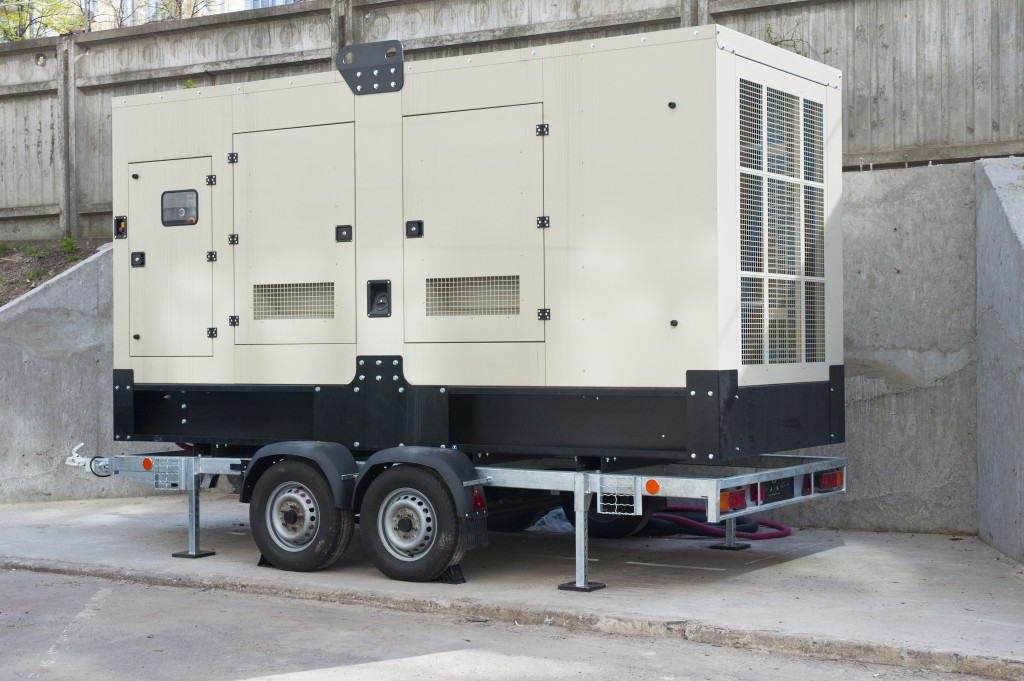If you’re a commercial building owner, chances are you’ve had to deal with your fair share of electrical issues. From power outages to faulty wiring, dealing with electrical issues can be a pain.
But don’t worry, we’re here to help. This article will show you how to deal with electrical issues in your commercial building.
Whether it’s a simple fix like changing a light bulb or something more complicated like rewiring your entire building, this will walk you through the process step-by-step. So if you’re ready to get started, read on!
If you have an electrical issue in your commercial building, you should call a professional electrician.
Electrical issues can be a significant hazard to your commercial building and the safety of yourself and anyone else inside. Whether it be flickering lights, frequent blackouts, strange smells, or buzzing sounds coming from the wiring, these are all symptoms of an electrical issue that requires professional attention.
A qualified electrician for emergencies will have the skill and expertise to investigate the problem safely, determine what is causing it and provide you with options on how best to fix it. In some cases, it may even be safer or cheaper for your business if you have them handle any necessary repairs.
Always err on the side of caution when dealing with electricity in a commercial building. If an electrical issue presents itself, don’t hesitate to call a professional electrician as soon as possible. They can help protect your building from potential danger and get everything back up and running safely again.
If the problem is with a specific appliance, unplug it and call an electrician to check it out.
If you experience an electrical problem in your building, it can be beneficial to take a few minutes and troubleshoot. If the issue concerns a single appliance – such as not working or turning on – the first thing to do is unplug it and cut off power to the device.
Make sure that the power outlet is operational by plugging in another appliance, as any electrical issues on this site will likely be beyond your scope of action (and would require an electrician’s expertise).
Depending on the type of device, you may also want to check its day-to-day maintenance dates – meaning how long ago it was last serviced or inspected. If these routines haven’t been done in a while, calling an electrician could save you time and money in the long run.
At this point, if all other avenues have been explored and exhausted, then it’s probably time to enlist the help of an expert for advice or repairs. An electrician can report whether something minor needs fixing or if more substantial problems are present that cannot be resolved alone.
Make sure that all of your outlets are properly grounded and that your wiring is up to code.
Properly maintaining your building’s electrical wiring and outlets is essential. Not only does it help ensure that all systems are safe and working as they should be, but it also helps to reduce the risk of a dangerous fire or shock.
When checking your building’s wiring, ensure that each outlet has the proper grounding, so there is no residual voltage. An electrician can ensure you have appropriate wiring and take steps to correct any faulty configurations before installing new outlets or appliances.
Additionally, all of your outlets must be up to code; this includes verifying the age of existing components and ensuring that any new wiring meets local safety standards.
Taking the time to check these areas can give you peace of mind and provide long-term potential cost savings if issues are addressed before they become more significant problems.
Be prepared for power outages by having backup generators or batteries on hand.

During a severe storm, power outages can occur anywhere and often last for several hours or days. It’s essential to be prepared with backup energy sources in an emergency.
Generators are a reliable source of electricity during a power outage, allowing businesses and households to maintain essential operations or services such as cooking, refrigeration, and communication.
Most generators use gasoline, but many renewable options, such as solar or wind, don’t require fuel. Another option is to keep a supply of batteries on hand that can run low-power devices such as LED lights, fans, and other energy-efficient gadgets. Batteries provide an immediate solution in a pinch but must be recharged regularly.
Commercial building owners should be proactive in checking their electrical wiring and outlets to ensure they are up to code and properly grounded. Additionally, it’s essential to have backup generators or batteries on hand in case of a power outage. By taking these simple precautions, you can help reduce the risk of a fire or shock hazard in your building.
